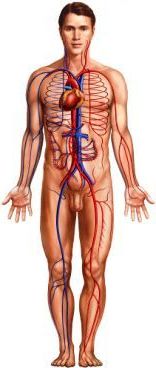Enhanced external counterpulsation – UNCP
Description EECP
Enhanced external counterpulsation (UNCP) It is used to treat chronic, stable chest pain (angina). Angina occurs, When the heart is not received sufficient blood and oxygen, to support its work.
Special cuff is placed on the feet, after which they were inflated with air. Pump air cuff begins to pulsate in rhythm with the heart and “push” blood back to the heart. EECP increases the amount of blood, which reaches the heart, that helps to improve blood circulation.

Causes of enhanced external counterpulsation
EECP is used to treat angina in the following cases:
- Medications do not provide sufficient effectiveness of treatment;
- Surgical intervention can lead to negative consequences;
- The doctor wants to try non-surgical treatments, before considering surgery;
- After surgery, felt pain in the chest.
Maybe, to assign EECP for the treatment of heart failure, if:
- The function of the heart, known as the fraction of cardiac output (FV), is less than 35%, in the absence of active symptoms of shortness of breath;
- Despite receiving appropriate medication for the heart, still present symptoms of angina.
The benefits of EECP may include:
- Reducing the need for the medication;
- Reducing the symptoms of angina;
- The absence of angina during increased physical activity;
- Improve heart function.
Possible complications of enhanced external counterpulsation
Complications are rare, but no procedure does not guarantee the absence of risk. Before, how to perform EECP, you need to know about possible complications.
The most common complication is skin irritation due to the installation of an inflatable cuff. There may be:
- Natertosti;
- Bruising or blisters;
- Bleeding;
- Pain in the leg or waist;
- Worsening symptoms of heart failure in people, who have certain heart rhythm disorders.
You do not have to spend EECP, in the presence of pregnancy, or from any of the following diseases:
- Severe heart failure;
- Problems of the heart valves (eg, aortic valve insufficiency or regurgitaciâ);
- Problems with heart rhythm (arrhythmia);
- High blood pressure, which can not be reduced by medication;
- Blockages in the veins or arteries of the legs (peripheral artery disease);
- Recent cardiac catheterization;
- Severe chronic obstructive pulmonary disease (COPD);
- Aneurysm aortы or aortic dissection (gap).
How is the enhanced external counterpulsation?
Preparation for the procedure
Before EECP, your doctor may do the following:
- Examine your medical history;
- Learn about drugs, that you take. The doctor may not recommend EECP, if you are taking blood thinners, eg, geparin or warfarin;
- Answers to your questions about the procedure.
It is recommended to wear tight-fitting, seamless pants. It may help to prevent irritation of the cuff.
Anesthesia
Anesthesia is not applicable, EECP as painless.
Description of enhanced external counterpulsation
You will lie on a soft table. They will be placed on your chest electrodes , to monitor your heart rate. It will also control blood pressure.
The cuffs are placed on the calves, and upper and lower thighs. The cuff is connected air hoses, which will inflate and deflate them in rhythm with the heart. Cuffs repeat cycle “pumping, pumping” 60-80 once a minute, in accordance with the heart rhythm.
How long will the procedure of enhanced external counterpulsation?
The total duration of the procedure is most often 35 hours. A session usually lasts 1-2 hours a day for seven weeks.
Will it hurt?
UNKP bezboleznennaya procedure. You may feel uncomfortable, when the cuffs are tight on your feet.
Care after enhanced external counterpulsation
After treatment, the electrodes will be removed and cuffs. After EECP can return home. You may feel a little tired after treatment. This feeling will diminish over time.
Follow these steps:, to reduce the risk of angina:
- Follow your doctor's instructions;
- Kontrolyruyte thy wind farm;
- Eat a healthy diet;
- Avoid dehydration;
- Take all medications as intended;
- If you smoke, you should try to quit;
- Exercise regularly and stay active, as much as possible.
Contact your doctor after enhanced external counterpulsation
After returning home, you should immediately see a doctor or call an ambulance, if there were signs of worsening angina:
- Severe chest pain;
- Breathlessness;
- Numbness or tingling in the arm, hand or wrist;
- Nausea;
- Symptoms, do not pass after taking the prescribed medicines.
